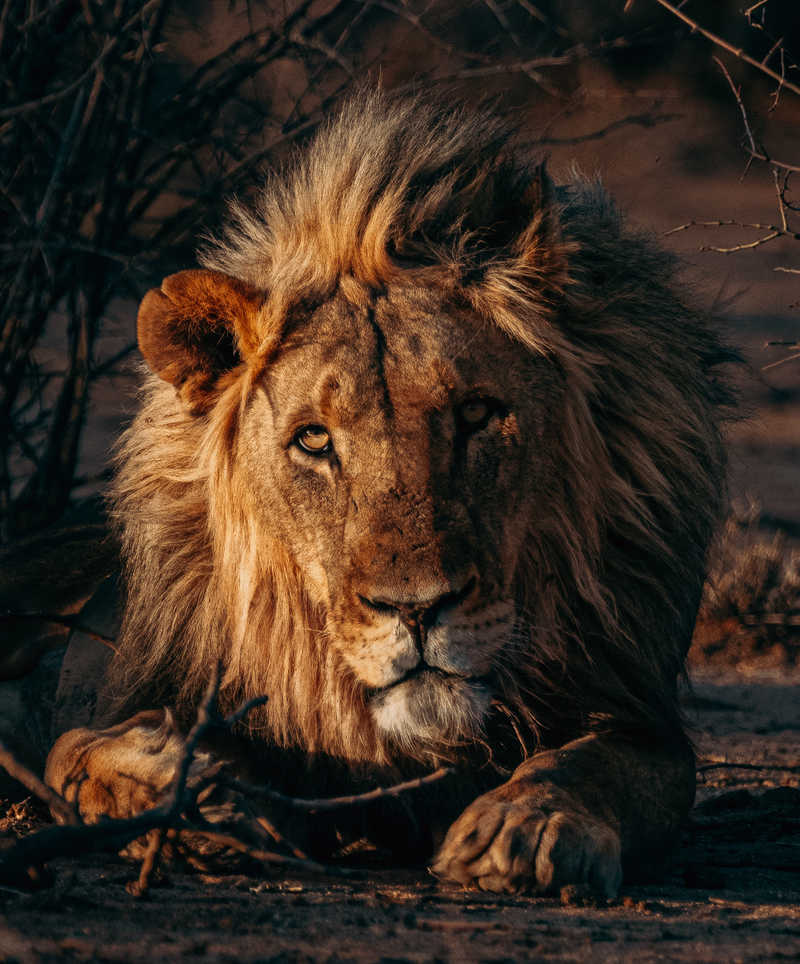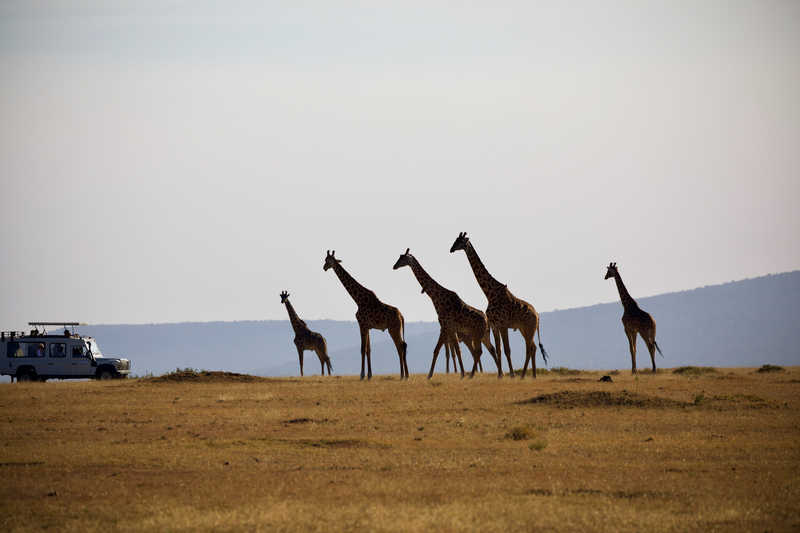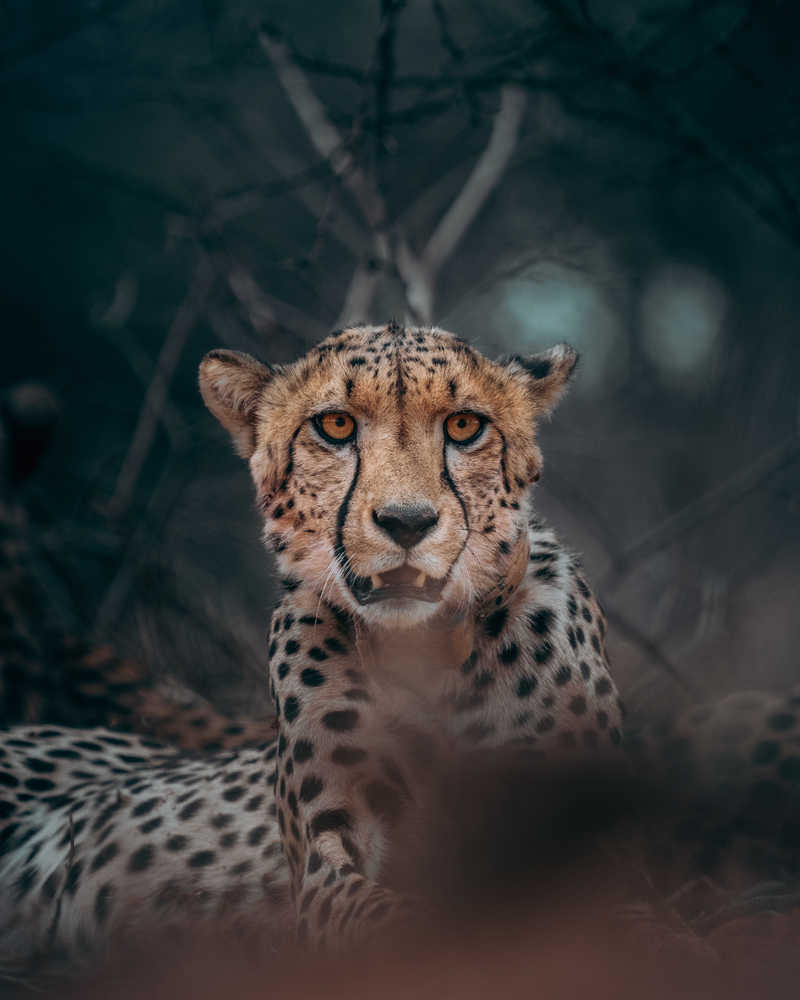The Northern Circuit with Crater Camp
- Kandoo Summits
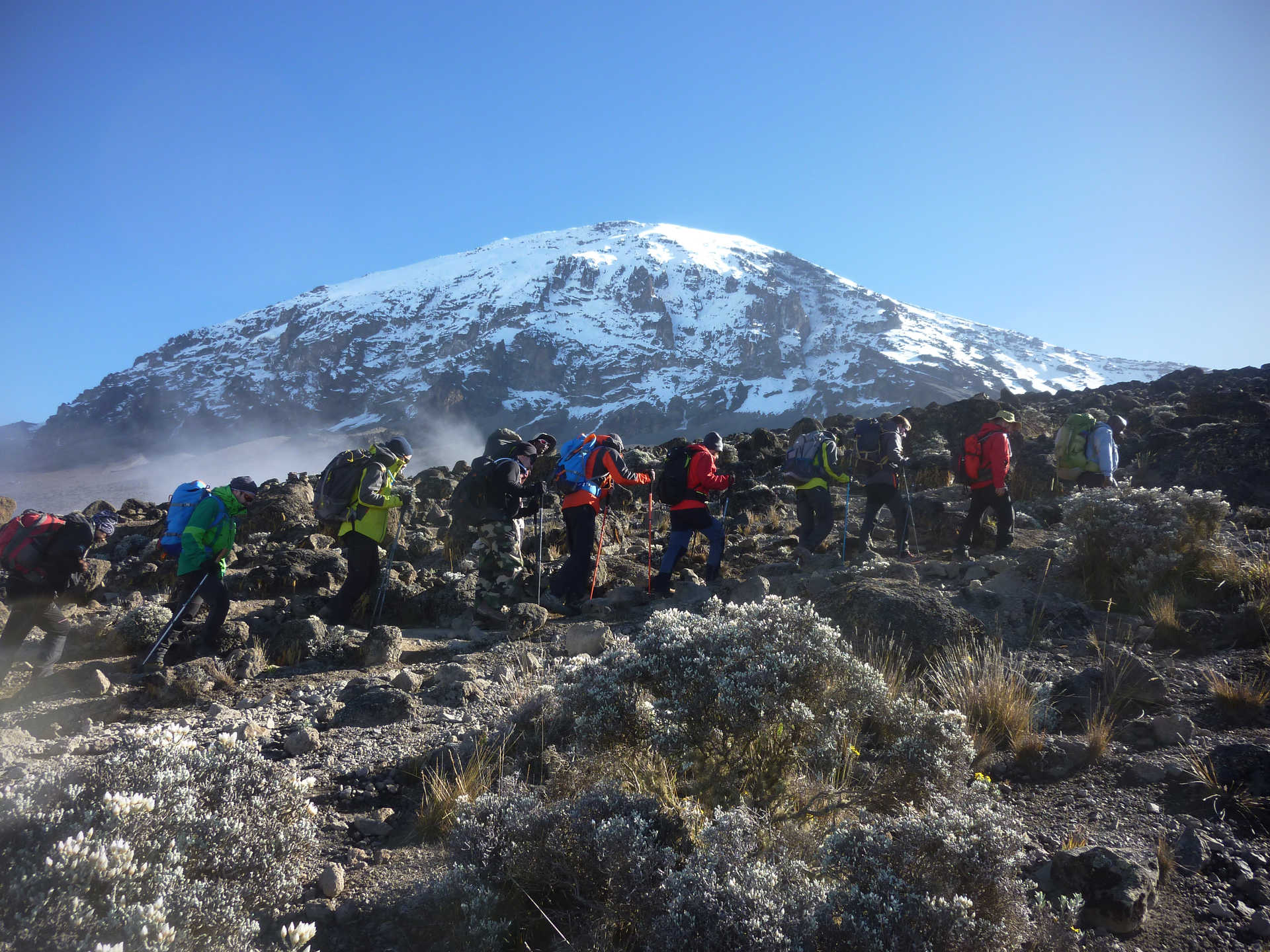
Contact
our UK team
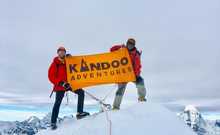
All trekkers need to organise their own flights to Kilimanjaro International Airport (JRO). From JRO we will arrange a private transfer to your hotel. That night or early the next morning you will meet your local Kandoo representative and have a full pre-climb briefing.
4WD transfer to Londorossi Park Gate for registration. Our porters prepare and pack our supplies and luggage before we start our ascent along the forest trail to Mti Mkubwa (Big Tree) campsite at 2895m. We will stay here overnight.
Our journey continues eastwards across the Shira Plateau with spectacular views of Shira Cathedral. We cross moorland meadow to reach Shira 1 Camp for dinner and overnight camping at 3500m. By now we will be able to see the stunning glaciers of the Western Breach. It will be colder tonight than the previous night with temperatures possibly falling below freezing.
Today we walk to the summit of Shira Cathedral, a huge buttress of rock surrounded by steep spires and pinnacles. There is a tangible sense of wilderness here, especially when the afternoon mists roll in. From our camp near Shira Hut, we take in the unforgettable views of Mt Meru.
We leave the moorland behind now and a gentle grade walk takes us across the high altitude Shira Caldera and up to Lava Tower where we have fabulous views of Arrow glacier. We then retrace our steps, decreasing elevation and make our way to Moir hut where we will camp for the night at just below 4200m.
We climb out of the Moir Valley and take a short detour to reach the summit of Lent Hills (4700m). After admiring the views we return to the trail and heads eastwards around the Northern Circuit trail. The final section of today’s walk undulates until reaching the location of Pofu Camp.
From Pofu Camp we cross numerous small valleys as the trail continues through a landscape that has increasingly sparse vegetation to eventually reach Third Cave Camp.
Today there is a steady ascent to reach the Saddle, a lunar landscape between the peaks of Kibo and Mawenzi. From here we continue upwards and reach School Hut in the early afternoon. The remainder of the afternoon is spent resting and preparing for the summit day.
We start the final and most demanding part of the climb around 7 am on a switchback trail through loose volcanic scree to reach the crater rim at Gillman’s Point. We rest here for a short time before we continue on to Uhuru Peak, passing close to the spectacular glaciers and ice cliffs that still occupy most of the summit area. After celebrating with a few summit photos we begin our descent into Kibo Crater to camp for the night.
We wake up early to hike to the Crater Rim in time to see the sunrise. From the rim, we descend down to the Millennium camp site. Trekking poles will be needed for the loose gravel going down to Millennium Camp. Later in the evening, we will enjoy our last dinner on the mountain and a well-earned sleep.
Your final day on the trek. Departing after breakfast, we descend a further 1300m to the Mweka Park Gate to pick up your summit certificates from the Park Headquarters. We will then transfer toy our hotel for a well-earned shower and celebration.
After a much-needed night’s rest we will bid you goodbye. If you have arranged airport transfers with us or a safari / Zanzibar trip, we will collect you from the hotel for your onward journey.
The Northern Circuit with Crater Camp is the longest and also the most remote route. The longer itinerary means that it has a good acclimatization profile. You can naturally "walk high, sleep low" which helps with acclimatisation.
Even though you don't have to climb the Great Barranco Wall on this route, you will still have a tough summit night approaching via Gilman's Point. You will be trekking for long periods of time so a good level of fitness and stamina is recommended.
BREAKFAST
Breakfast
is usually fairly hearty, and includes porridge, sausage, eggs and toast with
marmalade or jam. Of course, you’ll also have hot drinks, generally a choice of
tea, coffee or hot chocolate. Let your guide know if you are still hungry, or
even if you think you could ‘pack in a few more bites’. Our cooks always try to
provide more food than necessary to ensure everyone gets a good meal.
LUNCH
Lunch is
either packed for you, to carry in your rucksack, or we stop for a hot cooked
lunch depending on your itinerary. A typical packed lunch is a boiled egg,
sandwiches, a portion of chicken, crisps, snack bar, fresh fruit and a drink.
AFTERNOON TEA
Afternoon
Tea is served at the end of the day’s walking, once you get to camp. In
addition to tea and other hot drinks, there are plenty of peanuts, popcorn, biscuits
and snacks to help restore some of the energy you’ve just burned off.
DINNER
Dinners
are quite filling. They usually begin with a nice hearty soup, and then a main
course such as chicken curry, spaghetti bolognese, fresh vegetables, and plenty
of rice, pasta or potatoes, followed by a yummy dessert such as pancakes or
banana fritters with maple syrup or nutella!
Please be aware that Tanzania is
still a third world country and cut offs in both water and electricity supply
still happen regularly, and we cannot guarantee that the hotel will have hot
showers during your stay. The hotel will help as far as they can, but these
outages are outside their control.
We use only the very best high
altitude mountain tents, Mountain Hardwear Trango 3, to ensure you stay warm,
dry and comfortable on your Kilimanjaro climb. Please bear in mind, these are
proper mountain tents, designed to cope with extreme conditions so don’t expect
to be able to stand up and walk around inside! The dry, dusty conditions on
Kilimanjaro can play havoc with the zips and they can easily jam. Our guides
are armed with WD-40 so just ask them for assistance, rather than trying to
force the zip.
Your meals will be taken in a
separate mess tent where you will be able to sit comfortably, while you relax
and chat to your team mates and enjoy the wholesome food that our cook has
freshly prepared for you. Inside, you’ll be pleased to find a table (of course)
and a proper, comfortable chair with arms. With a full 2 metres of headroom,
even the tallest climbers will be able to stretch a bit, and move about without
hunching over. They are fully waterproof, and regularly withstand the worst
weather Kilimanjaro has to offer. A toilet tent is provided with toilet
paper.
Kilimanjaro National Park
operates an absolutely strict limit of 15kg per porter for your main equipment
bag. This limit includes your sleeping bag, even if it is rented from us. This
is more than sufficient for your needs on the mountain. Your bag will be
weighed before you leave the hotel to start the climb and if it is overweight
you will have to take items out and leave them at the hotel. Additional porters
can be hired but they cost $25 per day
PLASTIC BAG BAN
On 1st
June 2019, Tanzania introduced a ban on all single-use plastic bags. Please support this fight against plastic by using more sustainable
alternatives in your luggage, such as packing cubes and dry bags. Passengers
with plastic bags in their luggage may be asked to surrender them on arrival at
the airport.
The
zip-lock bags required to carry liquids and toiletries in cabin baggage on
airplanes will still be permitted.
Please take some time to read our Kilimanjaro Training Guide which is full of helpful tips on how to get physically prepared for your climb.
Please Note that not all hotels can accept
card payments so you may need to use an ATM to access funds.
You may
also find on your summit attempt that some of the porters accompany the group
to provide additional assistance. This is an additional task that they carry
out in order to support you having the best chance of reaching the summit.
Please show your appreciation for any help you receive by tipping these porters
directly. We would suggest an extra tip of $20.
The
tipping announcement will take place on the last night on the mountain when all
the crew will gather together to celebrate with you. One representative from
your group should say a few words of thanks, which will be translated by the
lead guide into kiSwahili.
Due to
recent thefts on Kilimanjaro, we no longer advise our clients to carry cash
with them during the climb, so the actual tip money will be presented when you
return to your hotel. Your group will be supplied with envelopes to assist with
the distribution of tips – one envelope for the porters and a separate envelope
that you can use to tip your lead guide, assistant guides and cook. Three
porter representatives will come to the hotel to accept the tip envelope on
behalf of all the porters, and they will distribute the money themselves.
RENTAL EQUIPMENT
If you’ve
decided to rent gear, then below is a list of equipment available. Just let our
team know what you’d like to hire at your Pre-Climb Briefing. All payments
are made locally in US Dollars (cash only).
These items must be packed in
your main equipment bag. They should not be attached to the outside, as we are
not responsible if items fall off when the bags are being carried up the
mountain. The sleeping bags weigh approximately 2.6kg each
UPPER
BODY
LEGS
·
Leggings
– thermal or fleece base layer (x1)
·
Trekking
trousers – light or medium weight (x2) – convertible trousers work well
·
Waterproof
hard shell trousers – ski pants work fine
·
Gaiters –
optional but it can be muddy in the rainforest and dusty higher up
FEET
OTHER ACCESSORIES
Want to ask us a question or book a private trip? Don't hesitate to contact us!
Contact us